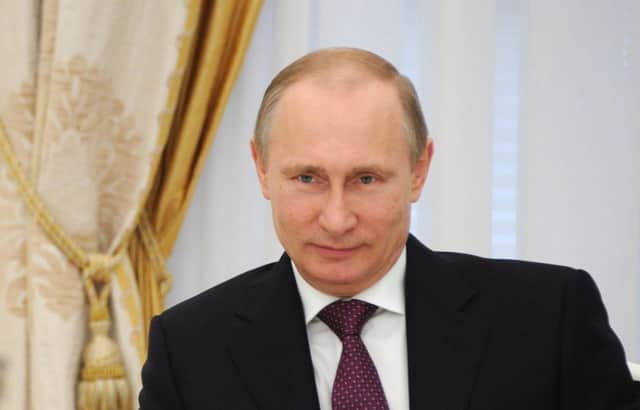Leaders: Salmond’s candour a step too far this time


Thus, in 1999 during a tight election campaign for the new Scottish Parliament, he publicly denounced Nato air strikes against Serbia as “unpardonable folly”. Though Mr Salmond found himself on the same side as the Archbishop of Canterbury, his intervention was criticised as aiding the embattled Serbian dictator. Few noticed Mr Salmond’s caveat that Milosevic bore “prime responsibility” for human rights violations in Kosovo.
This week, during another tight political campaign, the First Minister again finds himself in trouble following remarks he might deem as forthright, but which others see as insensitive. The occasion is an interview Mr Salmond has given to GQ magazine, conducted by Tony Blair’s former spin doctor Alastair Campbell. Asked whether he admired Vladimir Putin, Mr Salmond replied: “Certain aspects. He’s restored a substantial part of Russian pride and that must be a good thing.”
Advertisement
Hide AdAdvertisement
Hide AdThere is a case to be made that Putin is a wily and effective politician who has run rings around the West, especially over Syria. It is also true that Mr Salmond made his statement about Putin before the crisis in Ukraine. Nevertheless, if the First Minister fancies himself sitting at the top table in the EU and Nato, he should rethink his tendency to make foreign policy in fashion magazines.
But the GQ interview did not end with Mr Salmond’s laudatory remarks on Russia’s president. Discussing Scotland’s disastrous record on alcohol, Mr Salmond referred to “a nation of drunks”. Some will call that brave. But this is hardly suitable language for a First Minister to use in describing a sad condition that afflicts far too many of his countrymen and countrywomen. And it certainly is not how the nation’s putative leader should present Scotland internationally. From now on, whenever he is interviewed abroad, Alex Salmond will be asked: “Is Scotland still a nation of drunks?”
Mr Salmond’s intemperate words could also imperil building the consensus needed to defeat the scourge of alcohol abuse. The legality of the SNP government’s proposal for a minimum pricing of alcohol has now gone to the European Court for adjudication. That will take too long and a way still needs to be sought to make alcohol more expensive as soon as possible, because that is a vital weapon in the battle against alcohol abuse.
The Scotsman has always called for directness from our politicians and we normally welcome that from Alex Salmond. Unfortunately, the First Minister sometimes confuses bombast with leadership and this is a remark he should not have made.
Get to root of numeracy problem
SCOTTISH primary school pupils are getting worse at counting. According to new official figures, the number of P4 pupils doing well or very well in maths fell by 9 per cent in the last two years – an alarming drop.
Because this is only the second time such numeracy skills have been tested at primary level, it might be tempting to wait before drawing a conclusion. That would be a big mistake.
Whatever imperfections there are in the sampling, it is clear that numeracy skills in Scottish pupils – at secondary as well as primary level – are far inferior to the international standard, set mainly in Asian countries. According to last year’s authoritative OECD Pisa tests, taken by 15-year-olds, Scotland fails to make the top 20 in maths and science. And the latest Scottish Government findings show that numeracy at the S2 stage in secondaries has marked time since 2011.
In response to the findings on falling maths standards, the Scottish Government says it will make available an extra £1 million to fund numeracy hubs to help share good practice among schools. This move is to be welcomed, though the cash involved is hardly excessive. But it comes on top of a major shift in approach, in the new Curriculum for Excellence, that has placed improving the nation’s numeracy skills as a central educational goal.
Advertisement
Hide AdAdvertisement
Hide AdThere are signs that this new emphasis on numeracy is beginning to achieve results, with a marked increase in the proportion of pupils gaining Higher maths. But this improvement will be nullified if there remains a substantial minority of children leaving school who cannot count, and the root of the problem lies in the primary schools.